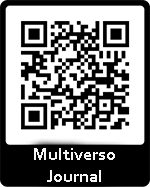Notes for the categorical overcoming of cultural and moral relativism in human rights matters
DOI:
https://doi.org/10.46502/issn.2792-3681/2025.9.5Keywords:
cultural relativism, moral relativism, universalism, human rights, philosophy of lawAbstract
One of the main obstacles to the full enjoyment of human rights in traditional societies is precisely cultural relativism, which leads to a worldview of moral relativism that is, in its essence and existence, contrary to the universalism of human rights. In this sense, the purpose of these reflections was to modestly contribute some notes to the debate on the categorical overcoming of cultural and moral relativism in the field of human rights. The arguments developed allow us to conclude that overcoming cultural relativism in absolute terms within the realm of human rights requires a constant commitment to intercultural dialogue, education, and the dissemination of universal values. This intellectual endeavor not only strengthens the global defense of human rights but also fosters understanding and consideration among diverse cultures that, in certain circumstances, may learn from one another. By confidently affirming the universality of human rights, we ontologically recognize our shared humanity and, at the same time, establish the foundations for a more equitable and peaceful world in the twenty-first century.
References
Álvarez, I. (2008). Una fundamentación utilitarista de los derechos humanos. J. S. Mill. Madrid: Universidad europea de Madrid.
Asamblea general de las naciones. (1948). Declaración Universal de Derechos Humanos. Nueva York: ONU.
Boco, R., & Bulanikian, G. (2010). Derechos humanos: universalismo vs. relativismo cultural. Alteridades, 20(40), 09-22. https://www.scielo.org.mx/pdf/alte/v20n40/v20n40a2.pdf
De Sousa Santos, B. (2002). Hacia una concepción multicultural de los Derechos Humanos. El otro derecho, (28), 01-15.
Fernández, F. M. (2018). Genocidio y otros crímenes atroces. Caracas: Editorial Livrosca, C.A. ISBN: 978-980-378-185-9.
Gadamer, H.-G. (1993). Verdad y método. Salamanca: Ediciones Siégueme.
Kant, E. (2005). Critica de la razón pura (prologo y traducción Pedro Rivas). Barcelona: Taurus Pensamiento.
Nussbaum, M. (2012). Crear capacidades Propuesta para el desarrollo humano. Barcelona: Paidós.
Russell, B. (2002). Historia de la Filosofía Occidental. Madrid: Espasa.
Spaak, T. (2007). Moral Relativism and Human Right. Buff. Hum. Rts. L. Rev, (73), 73-85. https://digitalcommons.law.buffalo.edu/bhrlr/vol13/iss1/6
Taylor, C. (1994). La ética de la autenticidad. Barcelona: Paidós.
The United Nations. (2024). Universality and diversity. Obtenido de Special Rapporteur in the field of cultural rights: https://www.ohchr.org/en/special-procedures/sr-cultural-rights/universality-and-diversity
Villasmil, J., & Chirinos, L. (2016). Reflexiones sobre Derechos Humanos, multiculturalidad y diálogo intercultural. Opción, 32(79), 197-216. https://produccioncientificaluz.org/index.php/opcion/article/view/21252/21089
Published
How to Cite
Issue
Section
License
Copyright (c) 2025 Pablo Cesar Castro Ortega

This work is licensed under a Creative Commons Attribution 4.0 International License.
The authors who publish in this journal agree to the following terms:
The authors retain copyright and guarantee the journal the right to be the first publication where the article is presented, which is published under a Creative Commons Attribution License, which allows others to share the work prior to acknowledgment of the authorship of the article. work and initial publication in this journal.
Authors may separately enter into additional agreements for non-exclusive distribution of the version of the work published in the journal (for example, placing it in an institutional repository or publishing it in a book), with an acknowledgment of its initial publication in this journal.



















